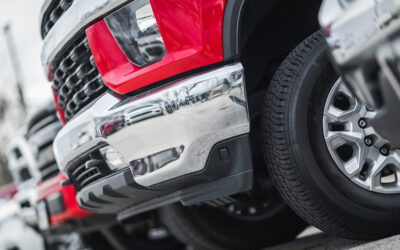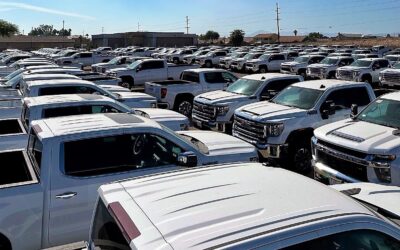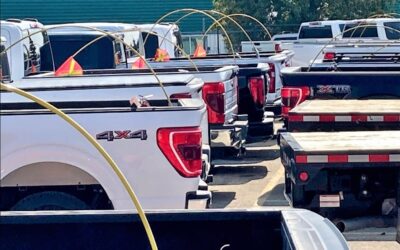Must Know Facts About Work Truck Batteries
A reliable battery is vital for a work truck to perform its job effectively. The right battery offers the power to start the truck and run the accessories that aid fleet drivers in reaching their destination and performing their tasks. If your truck battery fails, it will lead to your truck sitting idle in the middle of nowhere, which will result in some costly downtime and repair charges. Moreover, if it dies due to improper care and maintenance, then you will have to invest in a new one.
If you know every basic thing there is to know about work truck batteries, you can avoid the above-mentioned scenario and maintain your batteries over their entire expected lifecycle. So, here’s everything you need to know about truck batteries, including how to buy and take care of them:
Common Types of Work Truck Batteries
Here are the common Battery Council International (BCI) Group 31 batteries that the class 6-8 truck industry majorly depends on:
- Flooded Starting Batteries
- Flooded Cycle Service Batteries
- AGM Batteries
Each kind of battery has its own value, and the one a fleet chooses depends on their own budget, its application, and the environment it will operate in.
Starting Batteries
Starting batteries are flooded batteries that provide high starting and minimal cycle service. They are the most affordable work truck batteries. Various kinds of trucks such as dump trucks, day cabs, line haul, loggers, and mixers can run on these batteries.
However, there’s one downside to flooded batteries; they are hard to maintain as they require servicing – including cleaning the battery and terminals and adding battery water. Plus, you can’t add too much water because if it reaches the terminals, it can cause corrosion, which might lead to battery failure. Make sure to regularly check the electrolyte level and clean the terminals to ensure your battery lasts its expected lifespan.
Cycle Service Batteries
Flooded cycle service or dual-purpose batteries enter the picture when anti-idling restrictions and accessory power requirements demand more from work trucks than the standard flooded batteries can deliver. These batteries can endure multiple electric loads while offering sufficient cranking power. They work well with day cabs, sleeper cabs, delivery trucks, trucks with reefer units and lift gates, and school buses, as these batteries are able to handle the supplementary cycle service needs.
AGM Batteries
Newer trucks cycle batteries frequently need advanced battery technology. This is where AGM batteries come in; they provide high-level cycling and starting power. They endure the vibration and are more durable due to the glass mats inside them that absorb the electrolyte. Plus, they are sealed for easier servicing. AGM batteries are perfect for heavy-duty trucks such as sleeper cabs, day cabs, dump trucks, line haul, reefer trucks, trucks with lift gates, and mixers.
There are two types of AGM batteries – pure lead and recycled lead. Pure lead ones have no impurities, while the recycled ones have about 1% of impurities left. For grueling jobs, the pure lead ones are the ideal choice as they have an improved cycle life. The best AGM work truck batteries are the ones with advanced Thin Plate Pure Lead (TPPL) technology as they don’t corrode and have a greater surface area for the occurrence of chemical reaction, which leads to more power and a higher cranking capacity.
Newer Battery Choices
Lithium-ion batteries are a newer battery option for work trucks. Compared to lead-acid batteries, they provide up to 10 times deep-cycle resistance. Plus, they provide reliable power, low self-discharge, durability and fast recharge. They are also maintenance-free and lightweight. They are ideal for vehicles with regenerative braking and start/stop systems.
However, there are some concerns regarding lithium batteries; they are expensive and lithium is a volatile material when exposed to water or air, which makes it difficult to contain during battery damage or failure.
Other batteries such as nickel-zinc batteries provide similar advantages to lead-acid batteries; they are cost-effective, safe, recyclable, and provide ideal starting, cycling, and standby applications. Solid-state batteries are another promising technology that is in the research phase and might take about 10 to 20 years before it can be viable in battery applications.
Pick the Right Battery
Depending on the battery you choose, the cost can range from $90 to $1,200. Before opting for a battery, always check the battery label for its recommended cold-cranking amps (CCA) value. Don’t choose a battery that is lower than the OEM (original equipment manufacturer) specifications. Moreover, when looking for a battery with a higher CCA, pick one that stays within the CCA tolerances. If the CCA tolerances are exceptionally high, the battery material won’t activate properly and start to harden.
Choose the right technology for application as well as it can lead to huge savings for fleets and delivery vehicles. If you opt for the wrong technology, it will shorten the battery life, which will cost you more. Here’s how you can choose the right work truck batteries for various applications:
- Lift Gates – they put extra strain on batteries. If the battery is not furnished for a deeper discharge or cycle service, the supplementary power drain required to run the lift gates will shorten the battery life. So, make sure to choose a battery with more reserve capacity.
- Dump Trucks – they endure extensive vibration during service, which can be hard on a battery. This is why AGM batteries are ideal for dump trucks as they can endure vibration and jolts.
- Sleeper Cabs – they run various accessories that consume lots of energy, which is why you need a battery with a high energy reserve for sleeper cabs. Invest in a battery with a capacitor for your sleeper cab.
- Delivery Turks – they are often on the go with lots of starts and stops, which leads to neglect in battery recharging due to lack of sufficient time. Choose a battery with exceptional cycle life.
Additionally, do consider the weather when choosing a work truck battery. Trucks that operate in cold weather need a high-CCA battery with high reserve capacity as cold weather makes battery operation difficult.
Prioritize Battery Maintenance
Usually, work truck batteries last three to five years, contingent on the electronic demand, weather conditions, driving habits, and maintenance.
Some warning signs of eventual battery failure include electrical issues when running accessories, slow-starting engines, and corroded terminals. Moreover, they fail for various reasons including improper care, inadequate charging, and exposure to cold temperatures.
Here are some maintenance steps you need to take to prolong battery life:
- Regularly clean all the terminals as grease and grime will reduce charge acceptance.
- Check to see if the battery is secured properly so that any vibrations or jolts don’t damage your battery.
- When recharging your battery, make use of charging adapters on all stud battery posts.
- Make sure work truck batteries are tested annually or biannually by the company that you bought them from.
Recycle Dead Batteries
When your truck battery fails, make sure to recycle it. Return it to a core return program that works with a recycler who complies with the state regulations and has environment-friendly facilities.
Follow the factors mentioned above to choose and take proper care of your work truck batteries to avoid battery failure.
Source:
https://www.worktruckonline.com/350059/understanding-truck-batteries






